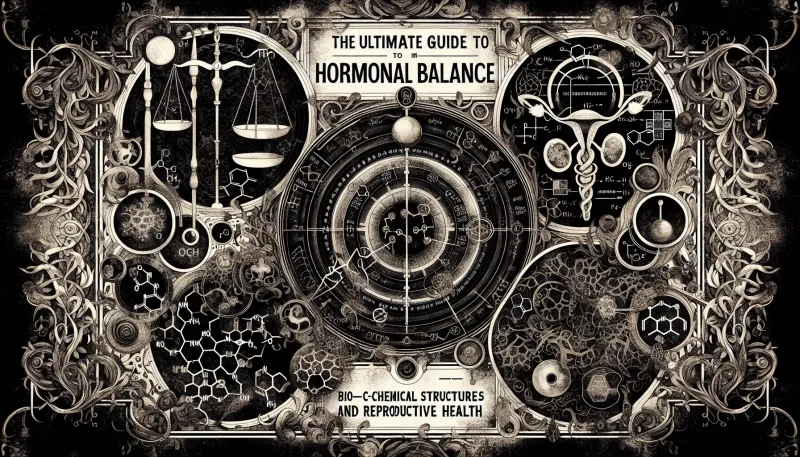The Ultimate Guide to Hormonal Balance and Reproductive Health

Learn everything about hormonal balance and reproductive health, including causes, symptoms, and natural remedies.
Introduction
Hormonal balance is essential for maintaining overall health and wellness, particularly when it comes to reproductive health. Hormones influence numerous bodily functions, including growth, metabolism, and reproductive processes. This comprehensive guide explores the factors that affect hormonal balance, the symptoms of hormonal imbalances, and practical solutions to restore equilibrium and promote reproductive health.
Understanding Hormonal Balance
What Are Hormones?
Hormones are chemical messengers produced by various glands in the body, including the thyroid, adrenal glands, and reproductive organs. These chemical messengers travel through the bloodstream to tissues and organs, regulating processes such as metabolism, growth and development, mood, and reproductive health.
Causes of Hormonal Imbalance
Several factors can disrupt hormonal balance, leading to various health issues. Common causes include:
- Chronic stress
- Poor diet
- Lack of physical activity
- Exposure to environmental toxins
- Genetic predisposition
- Medical conditions (e.g., polycystic ovary syndrome, thyroid disorders)
Symptoms of Hormonal Imbalance
Recognizing the signs of hormonal imbalance is crucial for seeking timely intervention. Symptoms may vary depending on the specific hormones involved but commonly include:
- Fatigue
- Weight gain or loss
- Irregular menstrual cycles
- Mood swings
- Acne or skin issues
- Sleep disturbances
- Reduced libido
Practical Solutions for Restoring Hormonal Balance
Nutrition and Diet
A balanced diet is pivotal for maintaining hormone levels. Focus on consuming whole foods, including:
- Fruits and vegetables
- Lean proteins
- Whole grains
- Healthy fats
Incorporating specific nutrients such as omega-3 fatty acids, vitamin D, and magnesium can promote hormonal health.
Regular Exercise
Physical activity helps regulate hormone levels, improve mood, and maintain a healthy weight. Aim for a combination of cardiovascular exercise, strength training, and flexibility exercises to optimize hormonal balance.
Stress Management
Chronic stress can lead to significant hormonal imbalances. Incorporate stress-reducing techniques such as:
- Mindfulness meditation
- Yoga
- Deep breathing exercises
- Adequate sleep
Avoiding Environmental Toxins
Environmental toxins found in household products, cosmetics, and food can disrupt hormonal balance. Opt for natural and organic products, and minimize exposure to harmful substances.
Medical Interventions
In cases of severe hormonal imbalance, medical intervention may be necessary. Consulting a healthcare provider is essential for accurate diagnosis and treatment options such as hormone replacement therapy or medications to address specific conditions.
Maintaining Reproductive Health
Regular Health Check-ups
Regular visits to a healthcare provider are vital for monitoring reproductive health. Routine screenings and tests can help detect issues early and ensure timely intervention.
Healthy Lifestyle Choices
Maintaining a healthy lifestyle significantly impacts reproductive health. This includes balanced nutrition, regular exercise, and adequate rest.
Understanding Your Menstrual Cycle
Tracking your menstrual cycle can provide valuable insights into your hormonal health. Apps and journals can help monitor cycle regularity and identify any abnormalities.
Addressing Fertility Concerns
For individuals experiencing fertility challenges, seeking guidance from a specialist can provide options and support. Treatments such as fertility medications, assisted reproductive technologies, and lifestyle modifications may be considered.
Conclusion
In conclusion, hormonal balance plays a critical role in overall health and reproductive well-being. Through proper nutrition, regular exercise, stress management, and mindful lifestyle choices, individuals can work towards achieving and maintaining hormonal equilibrium. For severe imbalances, seeking medical advice is essential. By understanding and addressing their hormonal health, individuals can enhance their quality of life and reproductive health.



























